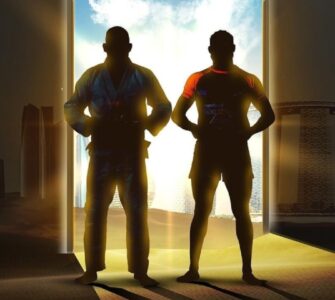Sports and physical activities are known for providing a long list of benefits for your physical and mental well-being. But what happens when you start to experience mental health problems that affect how you perform?
Poor mental health can stem from various factors but can ultimately alter your perception and experience of BJJ. This is why it’s essential to seek help if you find yourself losing interest or struggling to perform the way you used to.
In this post, we’ll look at a few ways that untreated mental health problems can affect your performance in Brazilian Ju-Jitsu practice and competitions.
You Begin to Lose Interest in BJJ
If you are losing interest in BJJ due to your mental health, you might struggle to perform well. That’s because you’re unable to fully engage in practice and healthy routines that make it possible to succeed in competitions. You may also be distracted during training and competitions, putting you at risk of injuring yourself or another person.
The stigma surrounding mental health, particularly for men, can make it challenging to open up about your struggles with friends or family members. Reach out to a therapist or a life coach for men. They can help you overcome mental obstacles preventing you from being the best version of yourself.
The pressure to perform well when you’re feeling off or are not healing from an injury as expected can cause your loss of interest. The stress of meeting the expectations of yourself and others can turn something like BJJ that you love into something that you dread. Don’t let poor mental health take away your passions.
You Have an Increased Risk of Injury
Stress can increase muscle tension, leaving your body more rigid and susceptible to injury. This makes it easier for an injury to occur when you move or when an opponent forces your body into a position that requires a more fluid response from your form.
You’re also more susceptible to becoming sick or causing injuries to heal much more slowly than they should. Some hormone levels in the blood can be increased, causing it to deliver essential compounds such as cytokines more slowly to the injury site.
Your body’s priority will be to mend your nervous system rather than your injury. If you experience mental health issues over time, your body will restructure the way it operates.
You Can Start to Experience Symptoms of PTSD
Athletic injuries are a common stressor that leads to anxiety and depression. Some injuries can force you to sit out for an extended period or be severe enough to prevent you from fully recovering. Long-term injuries can cause fixation on returning to pre-injury performance, which may not be possible.
A traumatic experience during practice or competition, whether it’s an injury or other physical experience, can be relived through similar stimuli in future practice or competition settings. An example would be having a panic attack when getting into a position that caused a previous debilitating injury.
These feelings of stress can turn into a feedback loop where stress leads to an injury, causing even more stress because you are injured. These feelings can make you feel isolated and stuck in the cycle. Without proper help, you may find yourself beginning to isolate yourself from the community and other athletes.
Know When to Get Help
Your mental health is just as important as your physical health. Without having both in check, you won’t perform as well as you want to. Reach out to a coach, friend, or mental health professional before you find yourself injured or losing the love you have for BJJ.

















